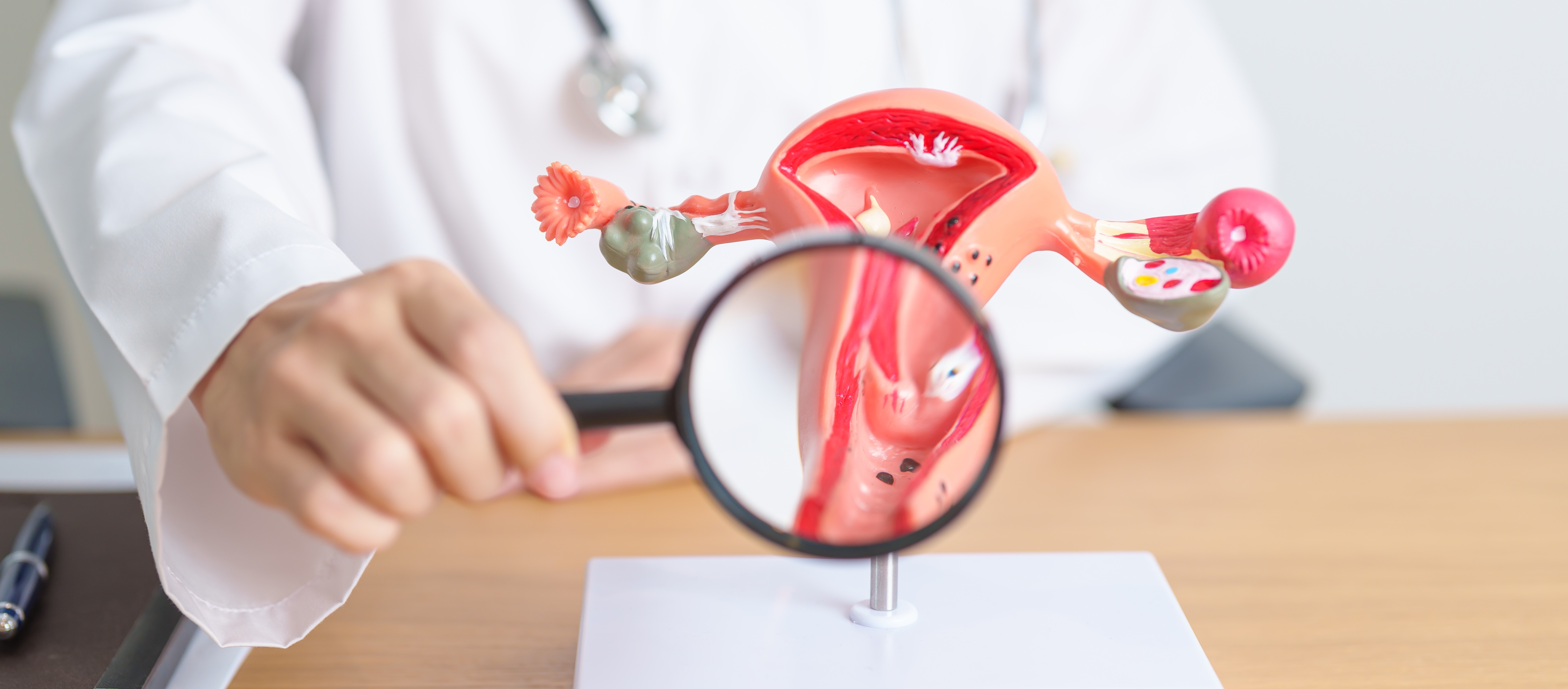Urinary Tract Infection (UTI) - Treatment, Symptoms, Diagnosis & Causes
Written By: Dr. Foroozan Khezri
Updated On:December 21, 2023

What is Urinary Tract Infection?
The urinary tract comprises the kidneys, ureters, bladder, & urethra. Most Urinary Tract Infections (UTIs) only involve the urethra & bladder in the lower tract. Sometimes UTIs include the ureters & kidneys, in the upper tract. While upper tract UTIs are rarer than those in the lower tract, they’re usually more severe.
Most UTIs are caused by:
- Bacteria
- Fungi
- Viruses (In Rare Cases)
UTIs are very common in humans, mostly caused by fecal bacteria entering the urinary tract. E. coli bacteria, which dwell in the bowel, cause most UTIs. It occurs more frequently in women than men - for every eight women who have UTIs, only one man does.
Causes of Urinary Tract Infection (UTI)
The main cause of UTIs is fecal bacteria entering the urinary tract. But the following factors may encourage the bacteria which cause UTIs to grow:
- Not consuming enough fluids.
- Holding in urine.
- Injuries to the spinal cord or nerve damage.
- Conditions that stop urine flow, such as tumors, enlarged prostate or kidney stones.
- Diabetes & conditions that decrease the immune system’s ability to fight off infection.
- Catheters.
- Constipation.
- Postcoital for ladies.
- After use of swimming pool by ladies.
- For paediatric age group, congenital anomalies of kidney & bladder.
- Hormonal changes in pregnant women allowing bacteria to spread through the ureters & to the kidneys.
- Vaginal infections.
Signs & Symptoms of UTI (Urinary Tract Infection)
Symptoms of a UTI depend on which urinary tract zone is infected.
Lower tract UTIs – those in the urethra & bladder – have symptoms which include:
- Burning when urinating.
- Increased urgency of urination.
- Urinating more often, in less volume.
- Bloody, cloudy urine.
- Brownish urine – that looks like cola or tea.
- A strong odor from urine.
- In women, pelvic pain.
- In men, rectal pain.
Upper tract UTIs cause issues with the kidneys. Upper tract UTIs can be life-threatening if bacteria move from infected kidneys to the blood. This condition, Urosepsis, can cause dangerously low blood pressure, shock, & death.
Symptoms of upper tract UTIs include:
- Upper back pain & pain in the sides.
- Chills & fever.
- Vomiting & nausea.
When to see a doctor for Urinary Tract Infection?
UTIs can be painful, & cause embarrassment, along with vomiting & pain. Your nearest Medcare clinic is on call to discuss your symptoms, offer a full diagnosis, UTI treatment & management. Untreated UTIs can lead to life-threatening situations, & if symptoms, as described above, are manifesting themselves, call to book an appointment. If you have symptoms of a urinary tract infection, contact us today for an appointment with one of Medcare’s specialist team.
Diagnosis of Urinary Tract Infection
If you think you may have a UTI, contact Medcare. UTI Diagnosis will involve:
- Assessment of symptoms.
- Physical examination.
- A urine test.
- A urine culture test.
- For suspected upper tract UTI, a full blood count & blood culture testing.
- Ultrasound from urinary track.
Your symptoms will be assessed, & a physical examination performed. Your healthcare professional will need to test the urine for microbes. UTI testing is common & needs to be a urine sample collected mid-stream, to avoid contaminating the sample with bacteria or yeast from the skin.
The doctor will explain how to do this. When testing the sample, doctors look for a large number of white blood cells in your urine, which can indicate infection. The doctor will also do a urine culture to test for bacteria or fungi. The culture can help identify the infection’s cause. It can also help decide which UTI treatment is best. If a viral infection is suspected, special testing may be suggested. Viruses are rare causes of UTIs but are seen in people who have had organ transplants or who have other immune system-weakening conditions.
Upper tract UTIs
In cases of suspected upper tract UTI, a complete blood count (CBC) & blood cultures may be undertaken, alongside the urine test. A blood culture makes certain infection hasn’t spread to your bloodstream.
Recurrent UTIs
If you often suffer from a UTI, your doctor might check for abnormalities or obstructions in your urinary tract. Tests for this include:
- Ultrasound: A device is passed over your abdomen, creating an image of your urinary tract organs, displayed on a monitor.
- Intravenous Pyelogram (IVP): Injected dye passes through the urinary tract, followed by an abdominal X-ray. The dye highlights your urinary tract on the X-ray image.
- Cystoscopy: A small camera is inserted through the urethra & into the bladder to see inside. During a cystoscopy, a small piece of bladder tissue may be removed & tested to check for bladder inflammation or cancer.
- A Computerized Tomography (CT) Scan: To provide more detailed images of your urinary system.
Treatment of Urinary Tract Infection
UTI treatment depends on the infection’s cause. Your Medcare team will determine which organism is causing infection from the test results used to confirm the diagnosis. In most cases, the cause is bacterial. UTIs caused by bacteria can be treated with antibiotics. Our female urologist will provide a special UTI treatment for prevention of recurrent UTI after antibiotic treatment. However, in some cases, viruses or fungi are the cause. Viral UTIs can be treated with antivirals. Antifungal medications will be prescribed to treat fungal UTIs.
Antibiotics for a UTI: The antibiotic used to treat bacterial UTIs usually on what part of the urinary tract is affected. Lower tract UTIs are frequently cured by the use of oral antibiotics. But Upper tract UTIs need intravenous antibiotics which means injection into the veins. Results of any urine culture test can help ascertain which antibiotic treatment will best fight the type of bacteria that caused the infection.
Home remedies for a Urinary Tract Infection (UTI): There aren’t any recommended home remedies to cure UTIs. Speak to Medcare for professional advice on how best to treat the condition. However, a few things can help UTI medication work better:
- Drinking more water, this may help clear the infection faster.
- Taking cranberry juice or eating cranberries, a chemical in cranberries may help prevent certain types of bacteria from attaching to the bladder lining, which may be helpful in preventing future UTIs.
- On time urination.
Untreated UTIs
Untreated UTIs get more severe the further they spread. That’s why it’s crucial to treat a UTI — the earlier, the better. A lower urinary tract infection is the easiest to cure. Infections that spread to the upper urinary tract are more difficult to treat, & there’s a higher risk they will spread into the blood, causing sepsis - a life-threatening event. If you suspect you have a UTI, contact Medcare. A simple examination could save you a lot of pain & trouble. We are here to diagnose, treat & manage your UTI, & ensure as swift a return to good health as possible.
Risk Factors of Urinary Tract Infection
Anything which reduces your bladder emptying or irritates the urinary tract can lead to a UTI. Many factors can also increase the risk of getting a UTI. These risk factors of UTI include:
- Age, older people are more prone to UTIs.
- Reduced mobility following surgery.
- A previous UTI.
- Kidney stones.
- Urinary tract obstructions or blockages, including enlarged prostate, kidney stones, & certain cancers.
- Long-term use of urinary catheters, which might make it easier for bacteria to get into the bladder.
- Poorly controlled diabetes.
- Pregnancy.
- Abnormally developed urinary structures from birth.
- A weakened immune system.
- Congenital anomalies for children.
- In men, having an enlarged prostate.
UTI Risk Factors for Women
Women also have some more specific risk factors, as follows:
- Shorter Urethra: The length & location of the urethra increase the likelihood of UTIs. The vagina & anus are close to the female urethra. Natural bacteria occurring around this area can lead to urethra infection. As the female urethra is shorter than a man’s, bacteria don’t have to travel as far to enter the bladder.
- Sexual Intercourse: Pressure & contamination of the urinary tract during intercourse can move bacteria to the bladder. Most women have bacteria in the urine after intercourse. However, the body usually rids itself of these bacteria within a day.
- Condom Use:Non-lubricated latex condoms can increase friction & irritate women’s skin during sexual intercourse, possibly increasing the risk of a UTI.
- Diaphragms: Diaphragms can put pressure on a woman’s urethra, decreasing bladder emptying.
- Decreased Estrogen Levels: After menopause, a decrease in oestrogen level changes the normal bacteria in the vagina, potentially increasing the risk of a UTI.
At Medcare, your health is our primary concern. Contact us today to discuss all your healthcare requirements.
Complications of Urinary Tract Infection
The main complication of a lower UTI is an ascending infection (when the infection moves into the upper urinary tract) which can lead to:
- Pyelonephritis, sudden, severe kidney infection, causing swelling, which can be life-threatening.
- Renal & Perirenal Abscess, a pocket of pus that develops in the kidney tissue.
- Impaired renal function.
- Renal failure.
- Urosepsis, a potentially life-threatening form of sepsis – blood poisoning.
In pregnancy, UTIs are associated with pre-term delivery & low birthweight.
Prevention of Urinary Tract Infection
We can all take the following steps to help avoid UTIs:
- Drink eight or more glasses of water every day.
- Don’t hold urine in – go when the urge hits.
- Talk to Medcare about managing urinary incontinence or difficulties in fully emptying your bladder.
- A healthy diet & regular exercise.
- Good personal hygiene practices & awareness of the causes of UTIs.
Certain other steps may help prevent UTIs in women:
- For perimenopausal or postmenopausal women, using topical or vaginal oestrogen (prescribed by a doctor) can help prevent UTIs.
- If your doctor believes intercourse is a cause in your recurrent UTIs, they may recommend taking preventive antibiotics after intercourse, or long-term.
- In older people, long-term preventive use of antibiotics reduces the risk of UTIs.
- Taking daily cranberry supplements.
- Probiotics, like lactobacillus, may help prevent UTIs.
Don’t suffer in silence if you think you may have a UTI. At Medcare, our experts will swiftly be able to diagnose your condition, offer appropriate UTI treatment & get you back on the road to recovery in no time.
Meet our doctors from the Urology department






















